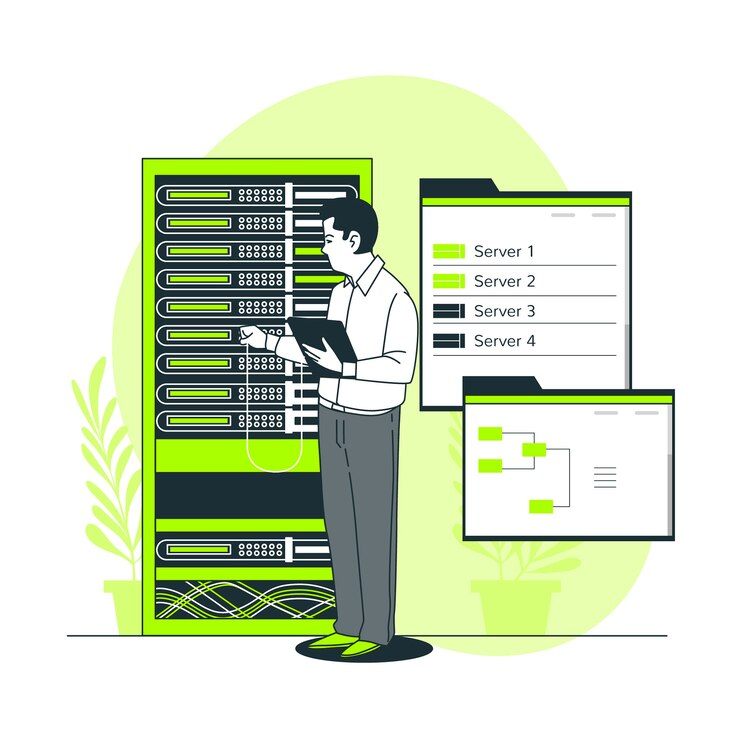Highlights
- Understand DevOps-as-a-Service and its benefits for businesses.
- Key factors to evaluate when selecting a provider.
- Step-by-step guide to shortlist and assess providers effectively.
- Solutions to common challenges like integration and resistance to change.
- Insights into future-proofing DevOps strategies for sustained success.
In today’s fast-paced digital landscape, organizations face increasing pressure to deliver software faster, more reliably, and with minimal downtime. Adopting a DevOps approach has become a cornerstone for achieving these objectives.
However, implementing DevOps effectively requires special expertise and a strong toolset, which is why many businesses turn to DevOps as a service provider. Selecting the right provider such as Tambena Consulting is a critical decision that can significantly impact your organization’s agility, efficiency, and competitive edge.
DevOps-as-a-Service Defined
Before diving into the selection process, it’s essential to understand what “DevOps-as-a-Service” entails. DevOps-as-a-Service refers to outsourcing the implementation and management of DevOps practices to a third-party provider. This service streamlines the software development lifecycle which is also termed SDLC. It involves various processes, techniques, tools, and advanced expertise to automate the process.
By leveraging a DevOps platform as a service, organizations can accelerate their DevOps adoption without the steep learning curve or infrastructure investment.
AWS DevOps
AWS DevOps is a detailed set of tools, services, and practices offered by Amazon Web Services. It facilitates the implementation of DevOps methodologies. AWS enables organizations;
- To automate and streamline their software development lifecycle (SDLC)
- Improving collaboration between development and operations teams.
By leveraging AWS DevOps, businesses can accelerate deployment, enhance scalability, and ensure continuous delivery of applications.
Key AWS DevOps Tools:
- AWS CodePipeline
Automates the release process by building, testing, and deploying code with seamless integration of third-party tools.
- AWS CodeBuild
A fully managed build service for compiling source code, running tests, and generating deployable artifacts.
- AWS CodeDeploy
Automates application deployments to various environments, such as EC2 instances, Lambda functions, or on-premises servers.
- AWS CloudFormation
Simplifies infrastructure as code (IaC) by enabling developers to model and provision AWS resources using templates.
- Amazon CloudWatch
Monitors applications and infrastructure, providing insights and alerts for optimizing performance and reliability.
- AWS CodeCommit
A secure and scalable source control service for hosting private Git repositories.
These tools integrate seamlessly to create a robust DevOps ecosystem, empowering organizations to deliver software efficiently and reliably.
Why Consider DevOps as a Service?
Outsourcing DevOps as a managed service offers numerous benefits:
- Cost Efficiency
Eliminates the need for in-house DevOps teams and infrastructure investments.
- Expertise
Access to seasoned DevOps professionals with diverse industry experience.
- Scalability
Solutions tailored to match your organization’s growth and changing needs.
- Faster Time-to-Market
Streamlined processes and automation reduce deployment times.
- Continuous Improvement
Providers often offer ongoing optimization and support to ensure your DevOps strategies remain effective.
Key Factors to Consider When Choosing a Provider

1. Expertise and Experience
Evaluate the provider’s track record. How long have they been offering DevOps services? Do they have experience in your industry? Look for certifications, case studies, and client testimonials to gauge their competence. A seasoned provider will be well-versed in implementing a DevOps platform as a service tailored to diverse organizational needs.
2. Comprehensive Toolchain
A reliable provider should offer a robust DevOps toolchain encompassing continuous integration/continuous deployment (CI/CD), monitoring, testing, and automation tools. Ensure the tools align with your existing technology stack and business goals. The integration of these tools should enhance, not complicate, your workflows.
3. Customizability
Every organization has unique requirements. Choose a provider who can customize their services to fit your needs. This flexibility is critical when adopting DevOps as a managed service, ensuring the solution supports your specific goals and operational challenges.
4. Security and Compliance
Security is non-negotiable. Verify that the provider adheres to industry best practices and complies with relevant regulations, such as GDPR, HIPAA, or ISO standards. A trustworthy DevOps-as-a-Service provider should prioritize robust security measures, including encryption, vulnerability assessments, and regular audits.
5. Scalability and Flexibility
Your DevOps needs may evolve as your business grows. Ensure the provider can scale their services seamlessly and adapt to new challenges. Whether you’re launching a new product or expanding into new markets, your DevOps platform as a service should grow with you.
6. Support and Training
Access to 24/7 support can be a game-changer. Ask about the provider’s support channels, response times, and training resources. Comprehensive onboarding and ongoing education can empower your team to leverage DevOps tools and practices effectively.
7. Cost Transparency
Pricing structures can vary widely. Look for a provider who offers clear and transparent pricing models. This allows you to budget effectively and avoid hidden costs that can derail your financial planning.
Evaluating Providers: A Step-by-Step Guide
Step 1: Define Your Goals
Start by identifying your specific objectives for adopting DevOps as a service. Are you aiming to reduce deployment times, improve software quality, or enhance collaboration? Clear goals will guide your evaluation process and help you choose a provider aligned with your vision.
Step 2: Research and Shortlist
Conduct thorough research to create a shortlist of potential providers. Consider their market reputation, range of services, and alignment with your industry needs. Online reviews, recommendations, and comparison platforms can be invaluable during this stage.
Step 3: Request Proposals
Reach out to shortlisted providers with a detailed Request for Proposal (RFP). Include information about your goals, current challenges, and desired outcomes. Evaluate the proposals based on criteria such as service offerings, expertise, and pricing.
Step 4: Conduct Interviews and Demos
Arrange interviews and live demos with the top contenders. It will help you get an idea about their communication style, approach, and how they will be compatible with your team. At this point, you should ask them in detail about how they are going to meet your specific needs and will be the best choice for you to consider.
Step 5: Verify References
Ask for references and contact past clients to understand their experiences. Inquire about the provider’s reliability, responsiveness, and ability to deliver on promises. This feedback helps in making the right decision.
Common Challenges and How to Address Them
Resistance to Change
Adopting DevOps often requires a cultural shift. Choose a provider who can facilitate this transition through effective communication, training, and change management strategies.
Integration Issues
Integrating DevOps as a managed service with your existing systems can be complex. Opt for a provider with proven integration expertise and a focus on minimizing disruptions.
Overlooking Long-Term Needs
While short-term benefits are important, consider your long-term goals. Ensure the provider’s services are future-proof and capable of evolving with your business.
Conclusion
Choosing the right service provider for DevOps is a strategic decision that can transform your software development processes. In this regard, Tambena Consulting can help empower your organization to achieve its goals. We offer a comprehensive set of DevOps services that will ensure you get your software developed without a hitch.
Whether leveraging a DevOps platform as a service or opting for a fully managed solution, our DevOps services will enable faster, more efficient, and secure software delivery, setting your business up for a definite success.





